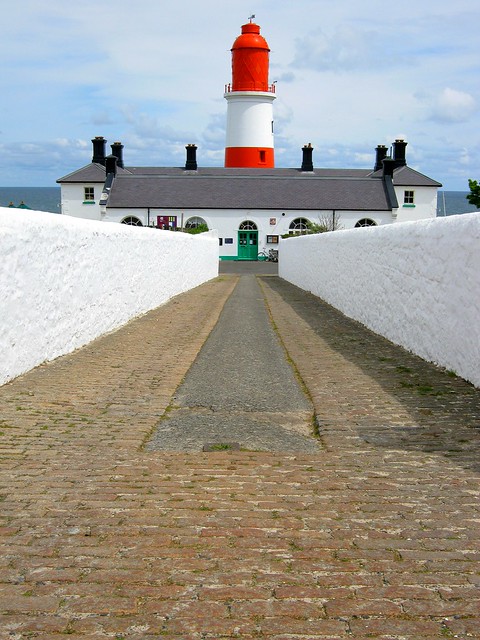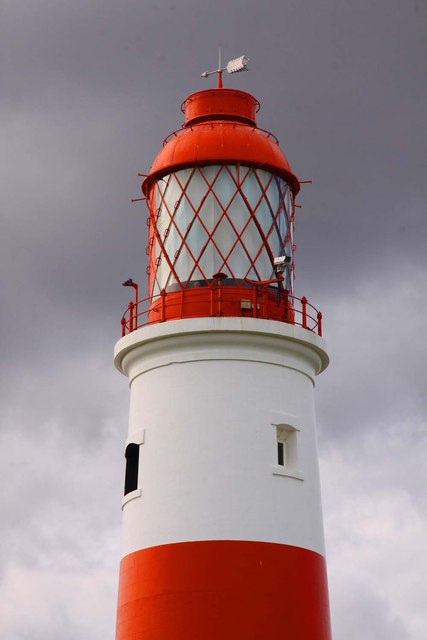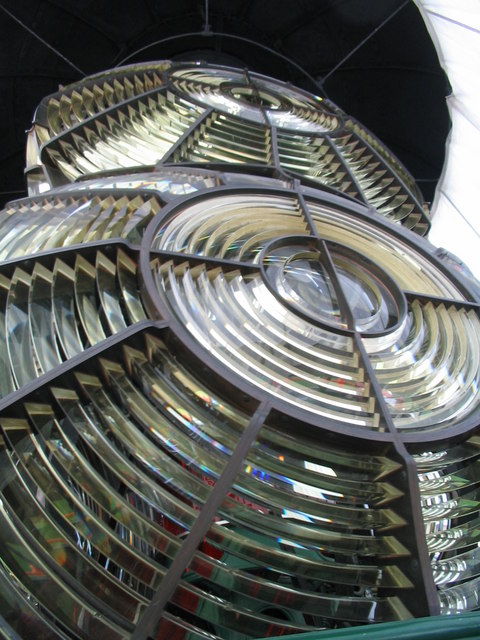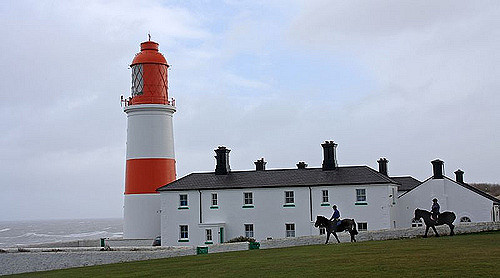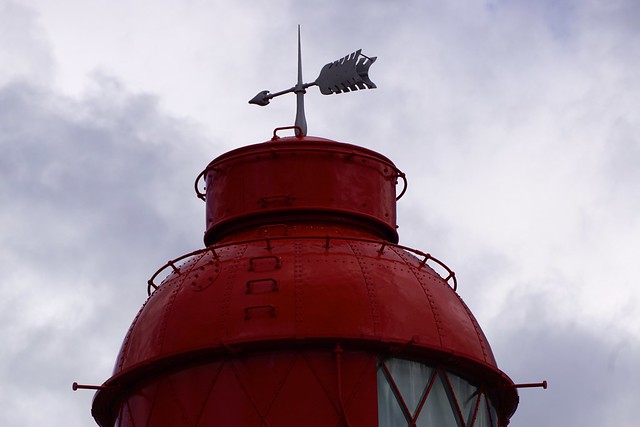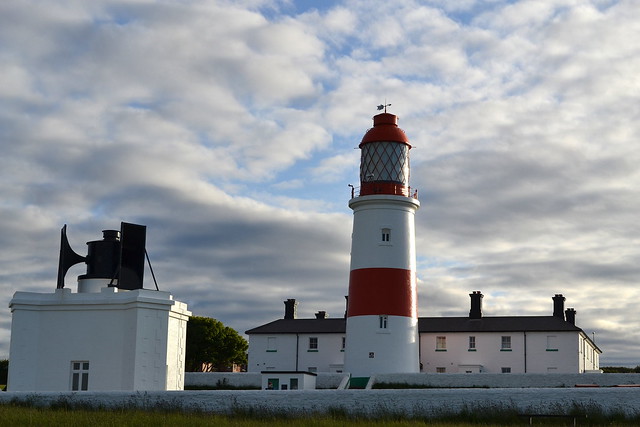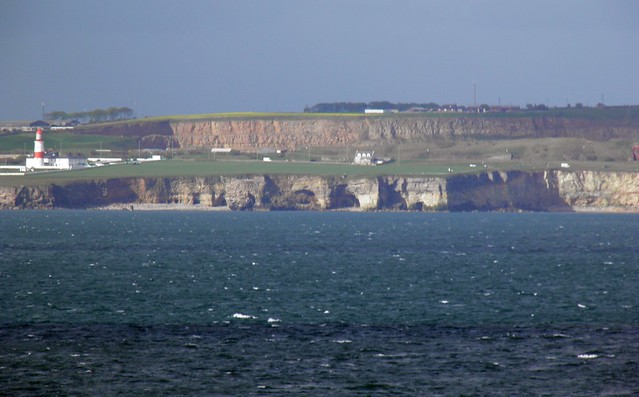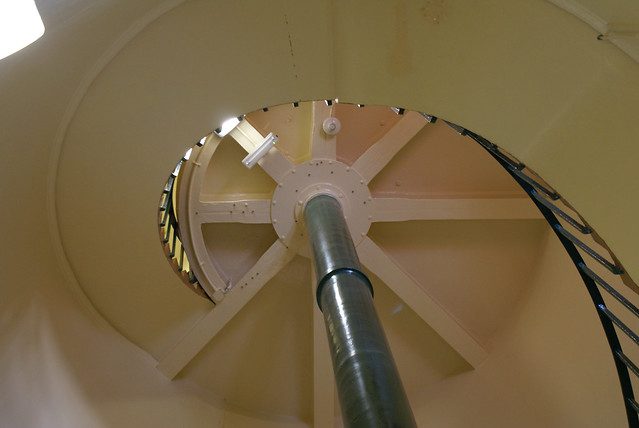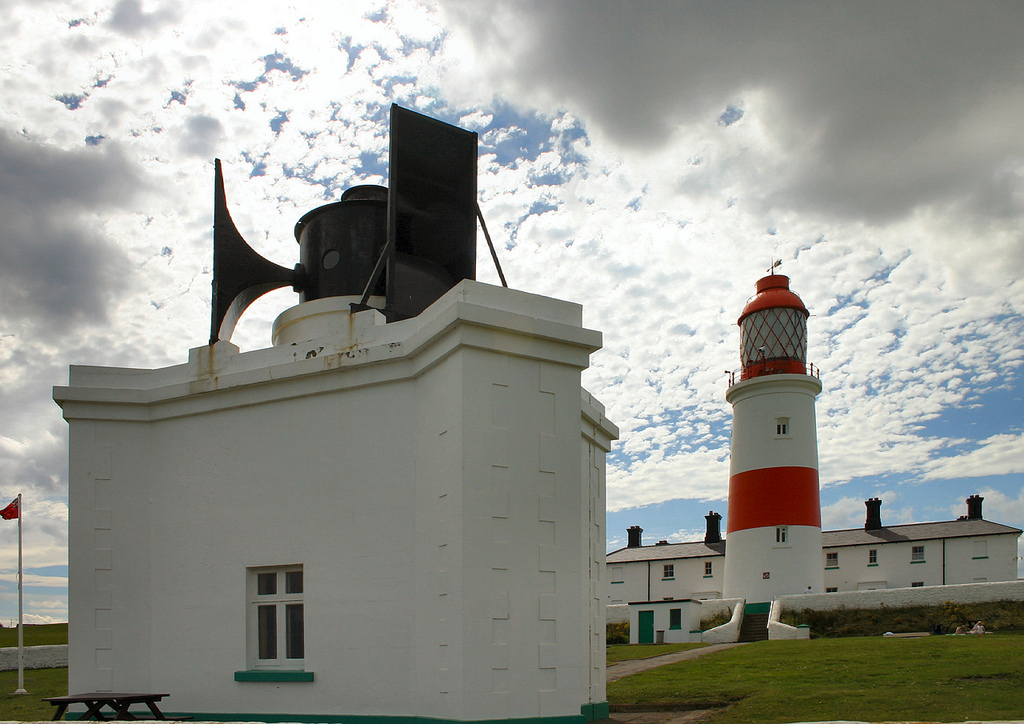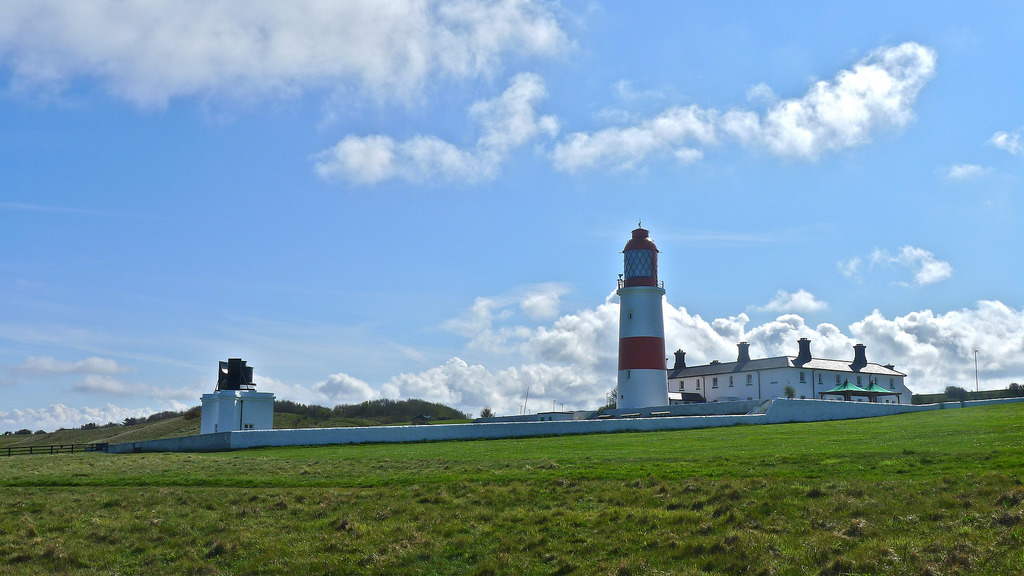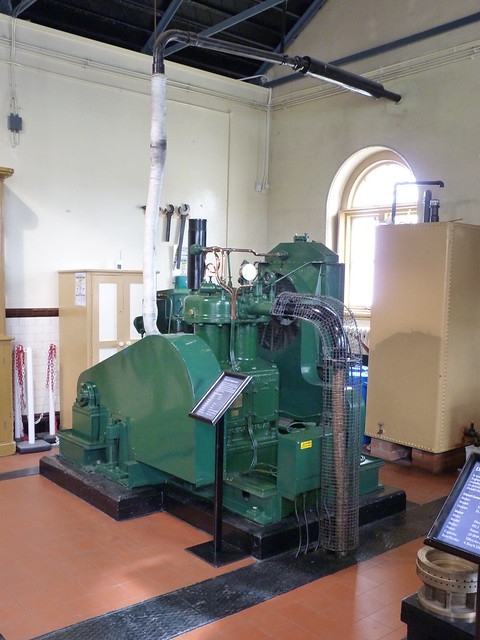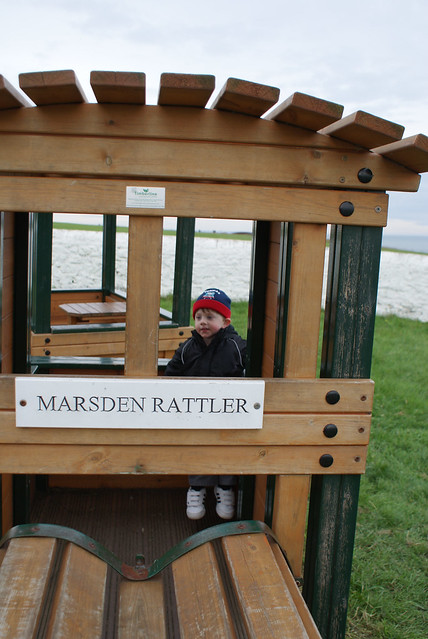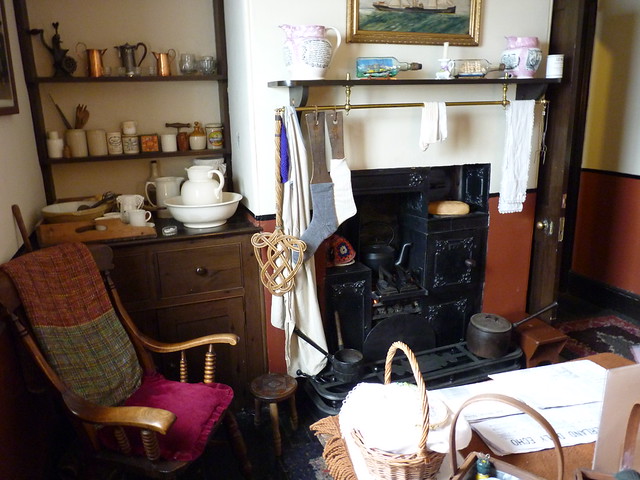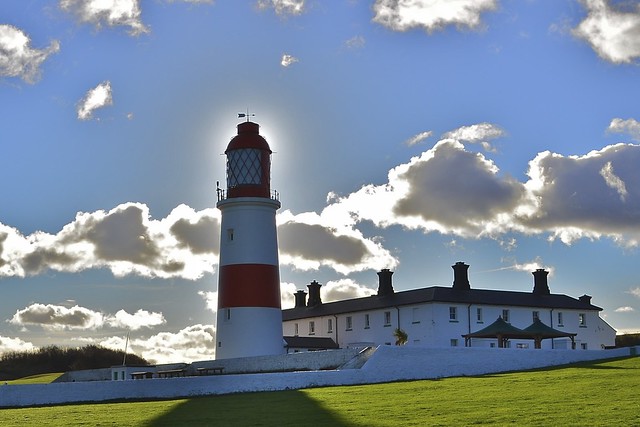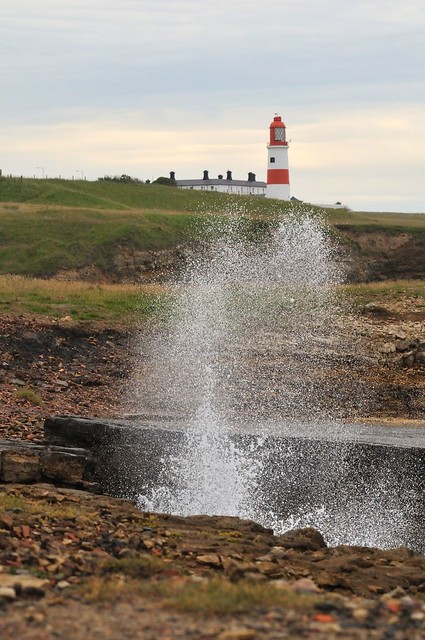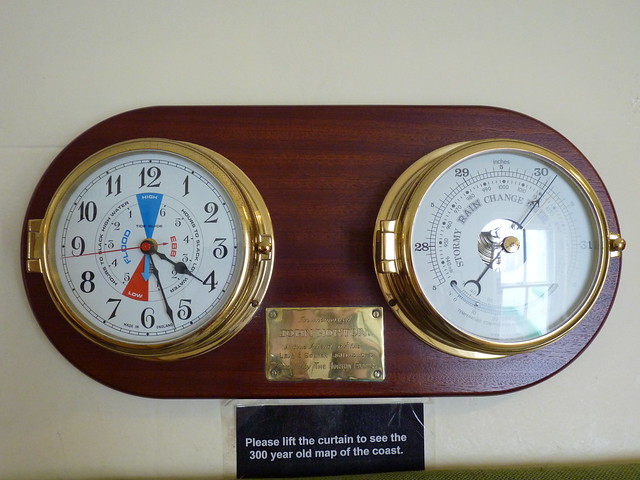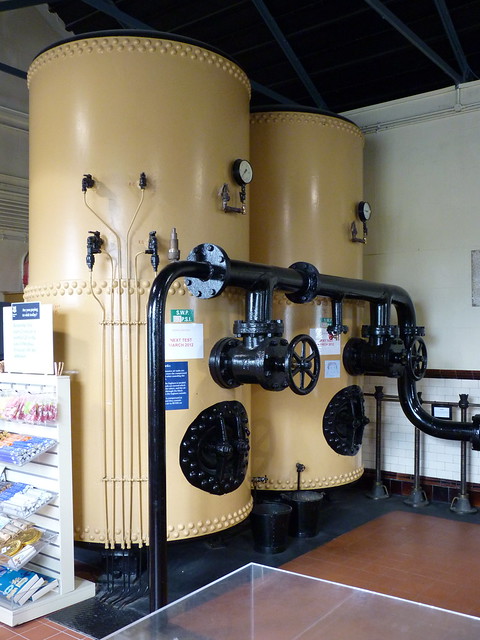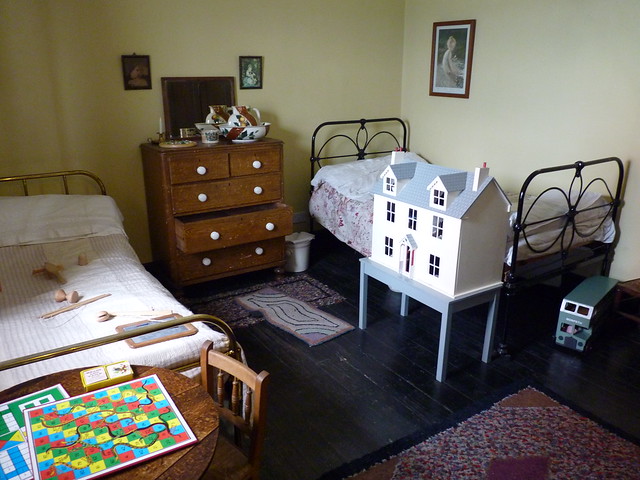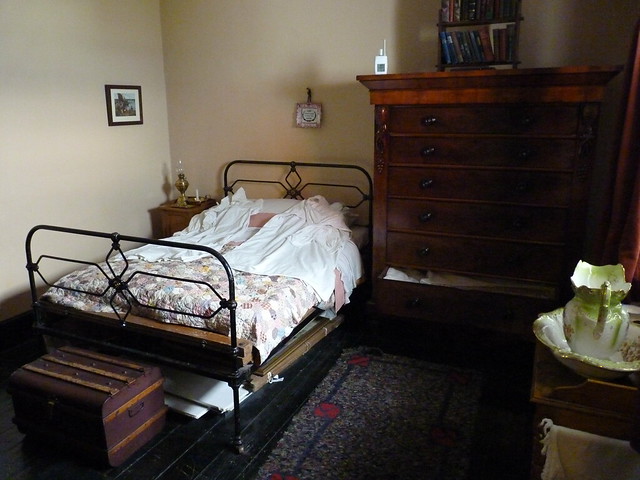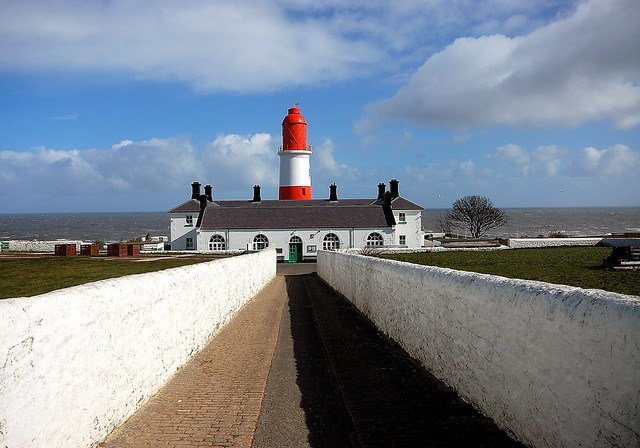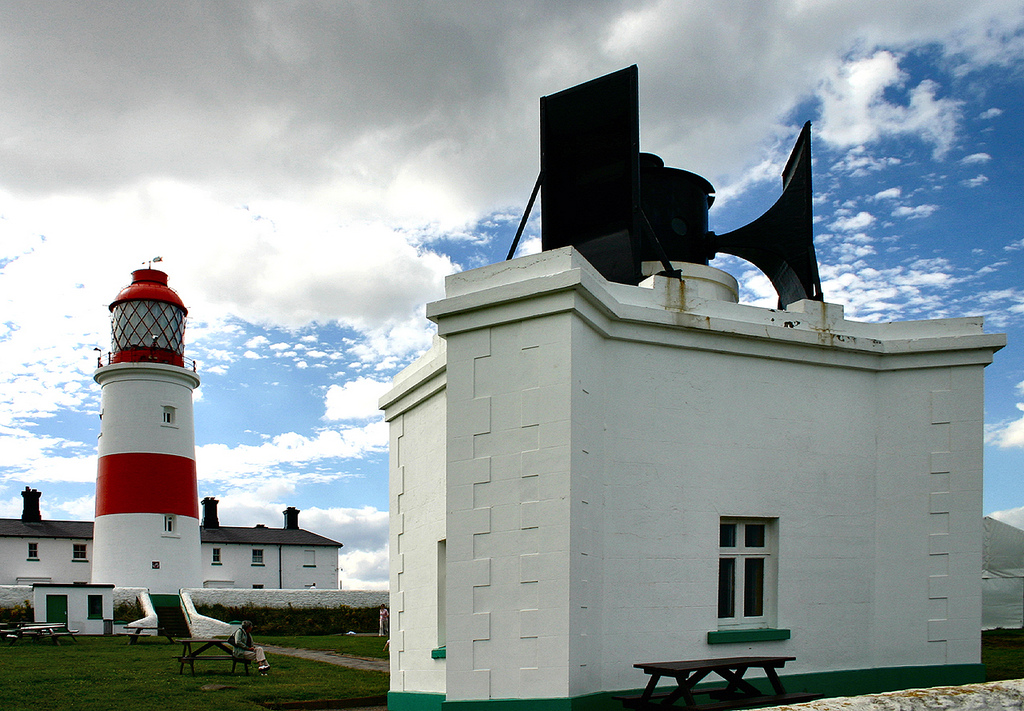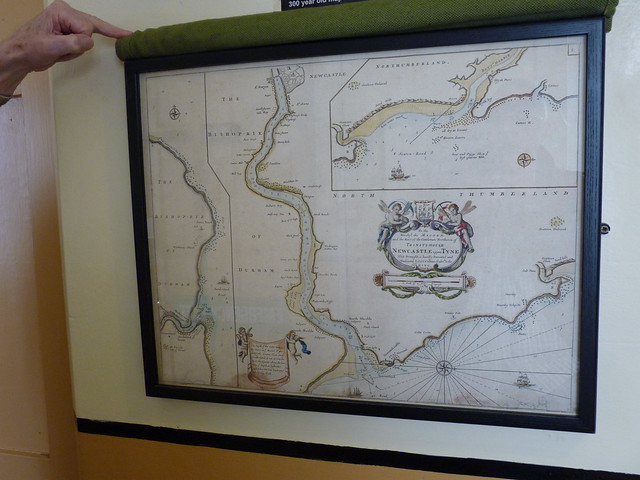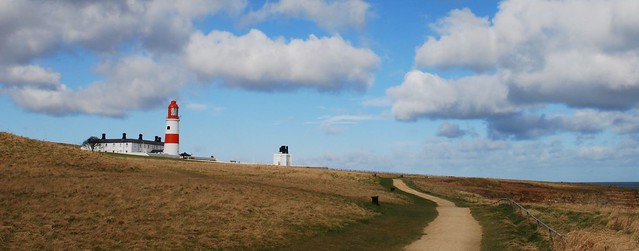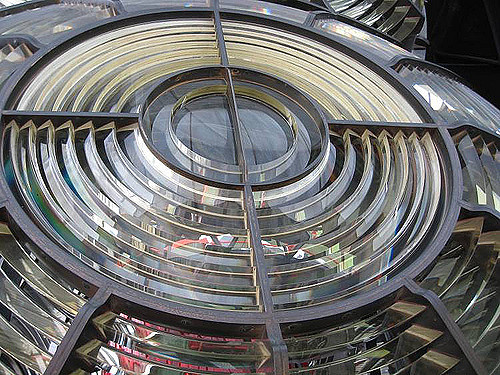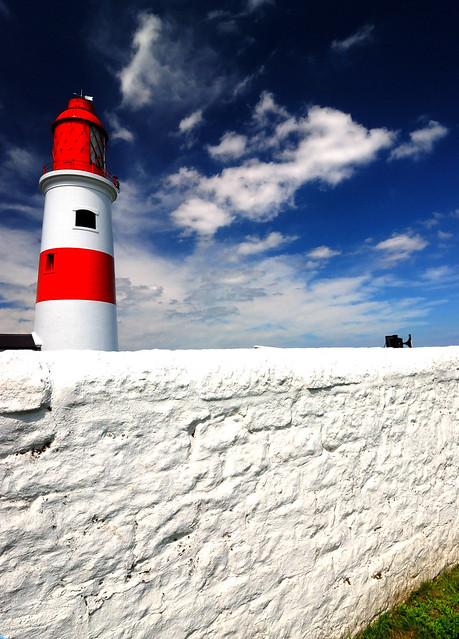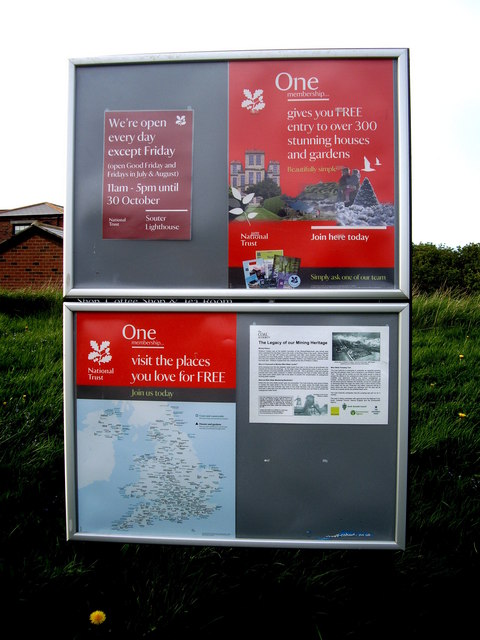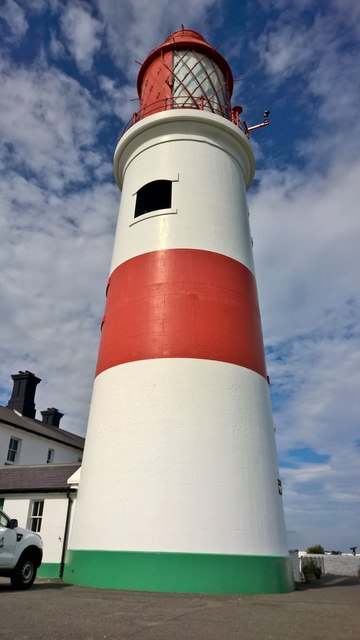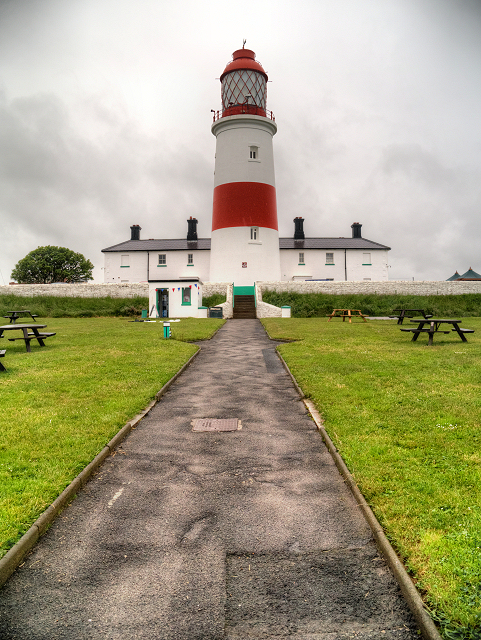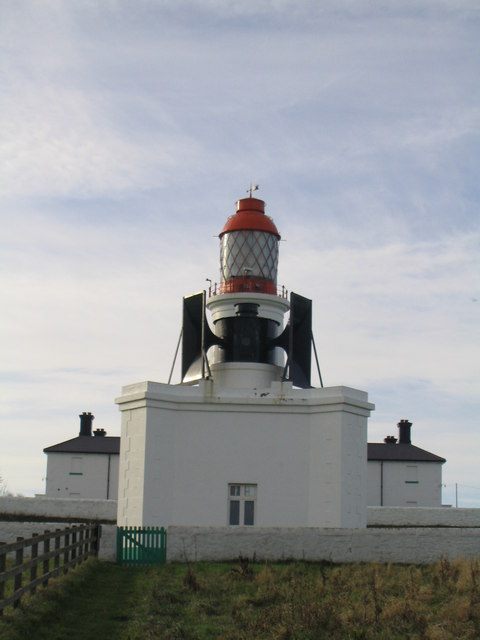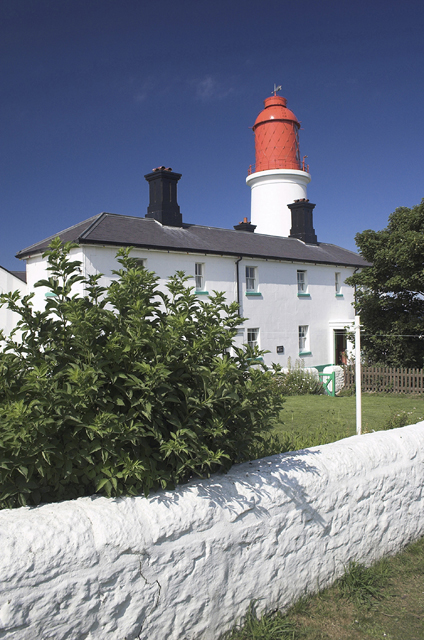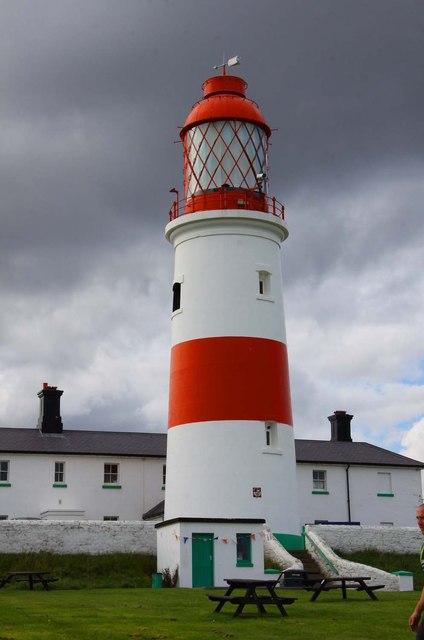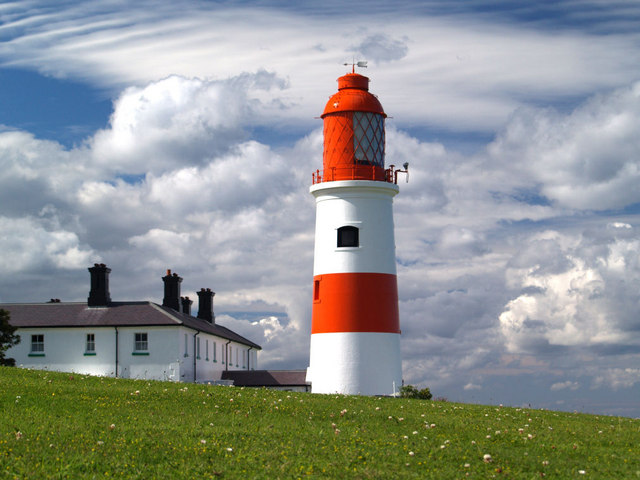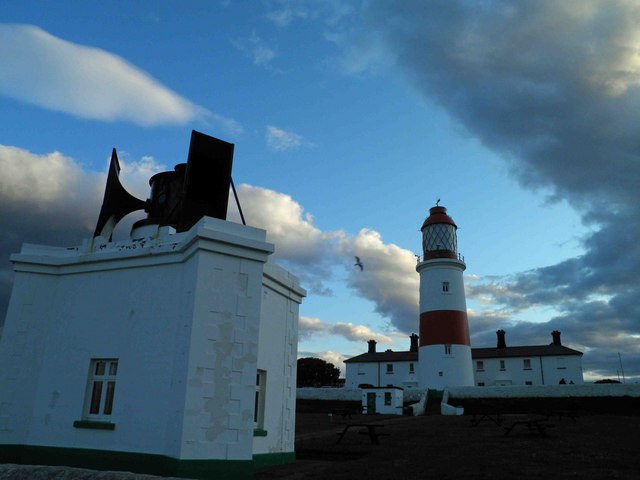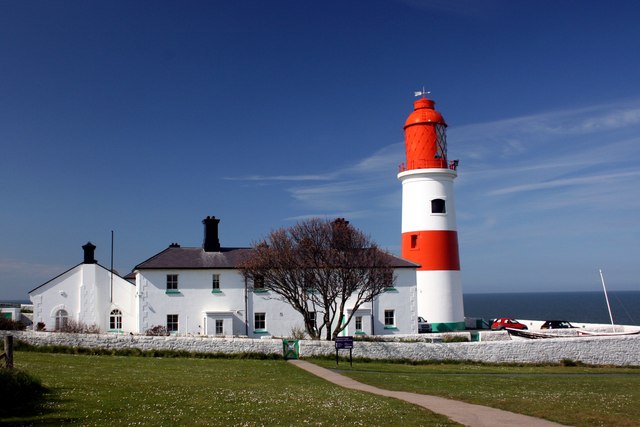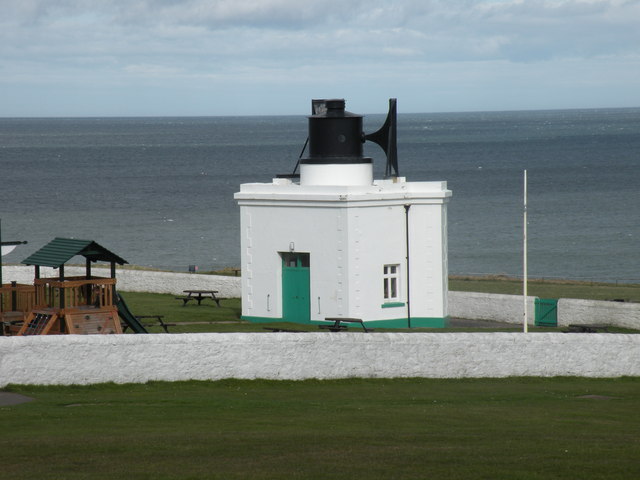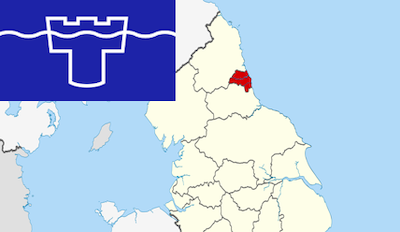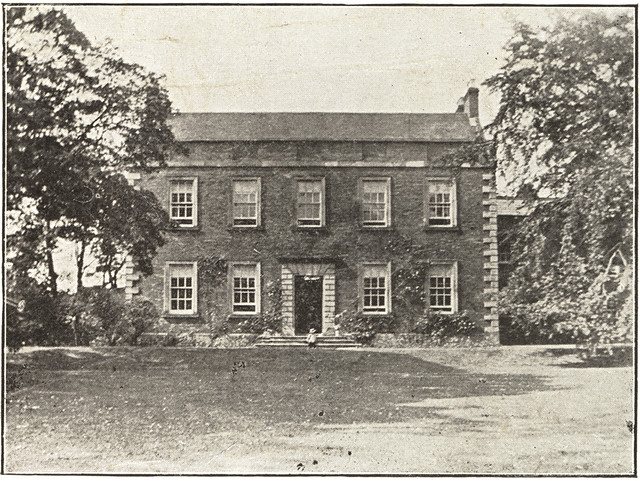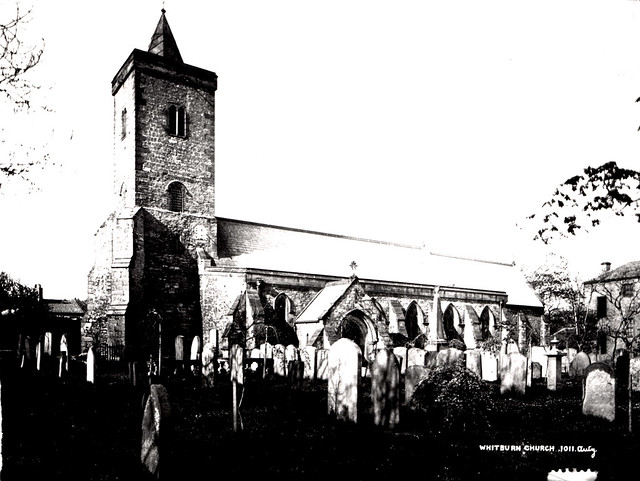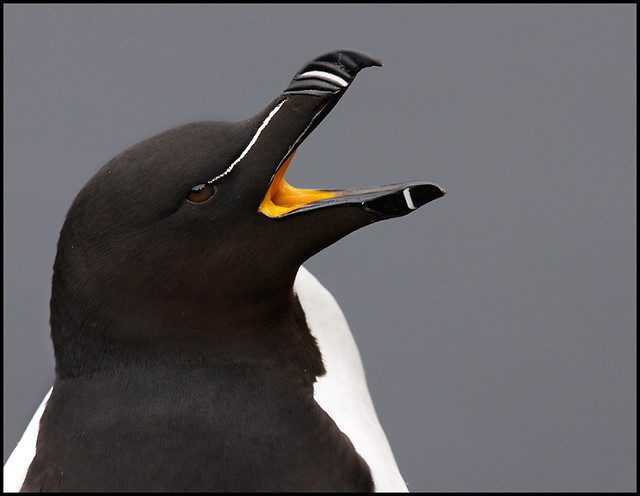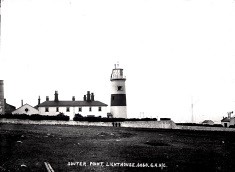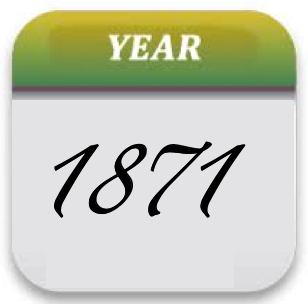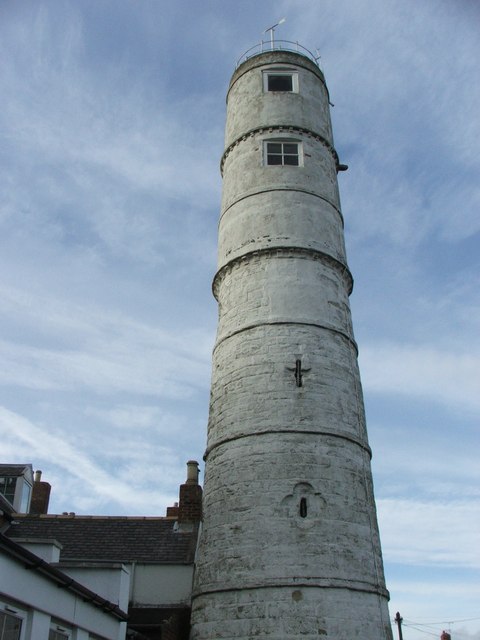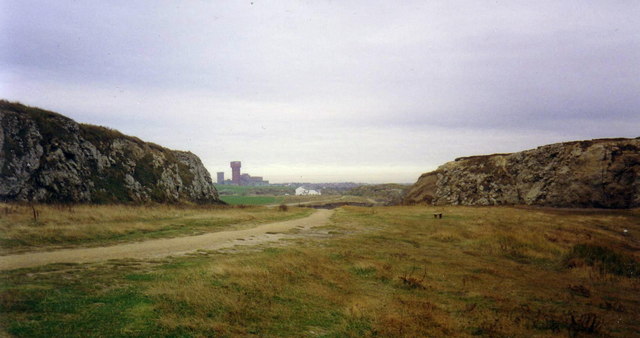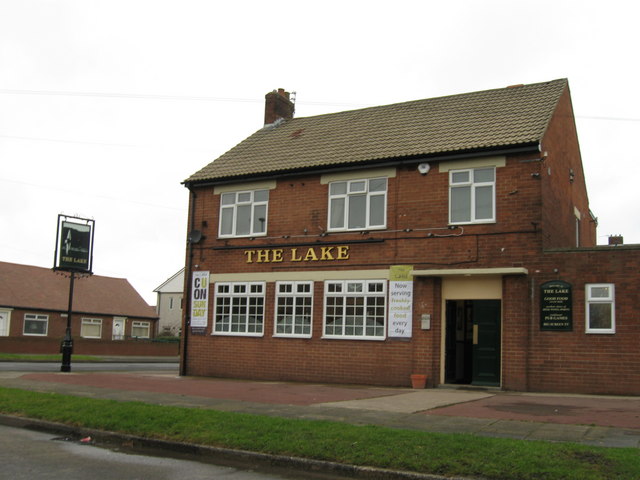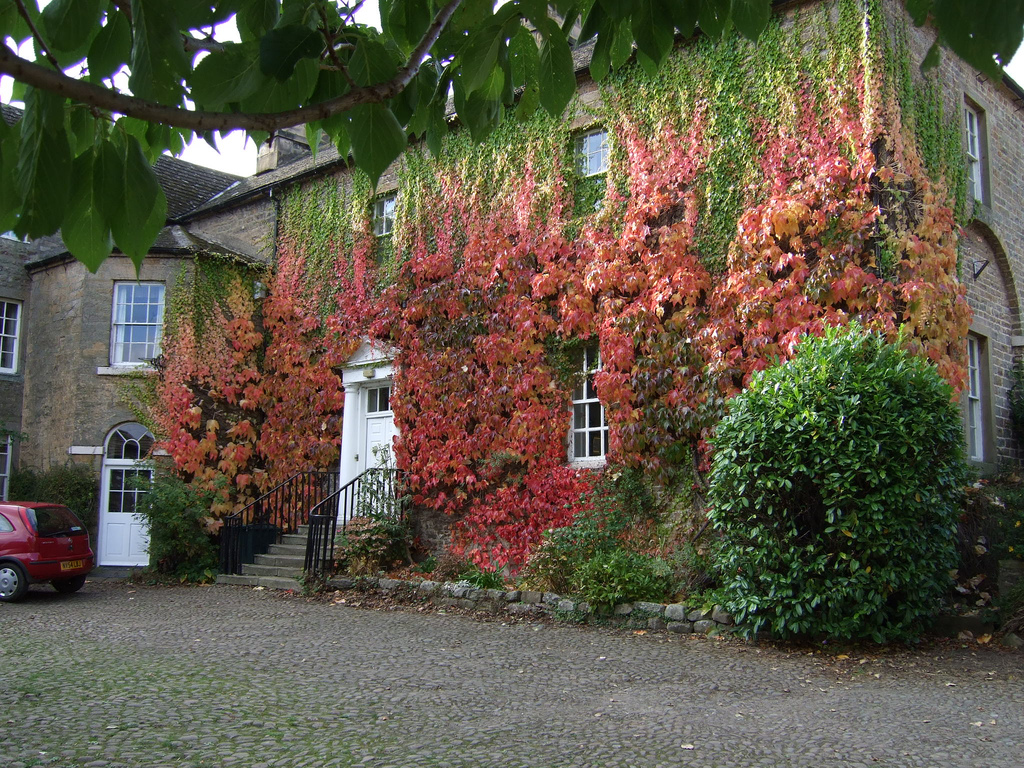Topics > Tyne and Wear > South Tyneside > Whitburn > Souter Lighthouse
Souter Lighthouse
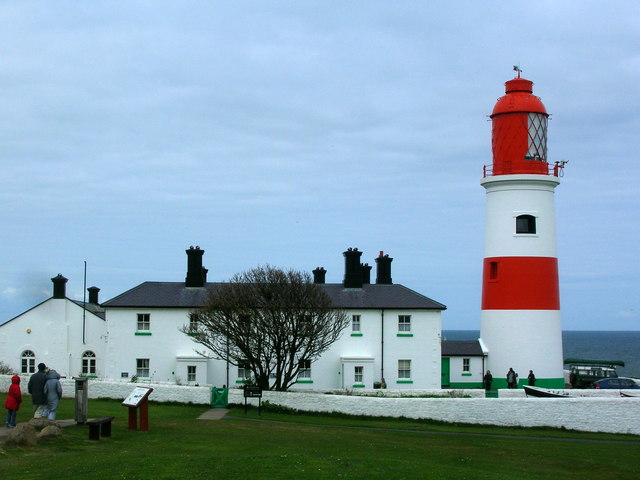 Souter Lighthouse is located on Lizard point on the South Tyneside coast, between Marsden and Whitburn. It was built in 1871 by Sir James N Douglas for Trinity House - and was the first lighthouse in the world to be purpose built to use alternating electric current. The lighthouse was decommissioned in 1988. The lighthouse and associated buildings are managed by the National Trust and open to visitors. The lighthouse, engine house, boiler house, workshops and houses are Grade II* listed buildings.
Souter Lighthouse is located on Lizard point on the South Tyneside coast, between Marsden and Whitburn. It was built in 1871 by Sir James N Douglas for Trinity House - and was the first lighthouse in the world to be purpose built to use alternating electric current. The lighthouse was decommissioned in 1988. The lighthouse and associated buildings are managed by the National Trust and open to visitors. The lighthouse, engine house, boiler house, workshops and houses are Grade II* listed buildings.Souter Lighthouse is a lighthouse located in the village of Marsden in South Shields, Tyne & Wear, England. Souter was the first lighthouse in the world to be actually designed and built specifically to use alternating electric current, the most advanced lighthouse technology of its day.
History
The lighthouse was a much-needed aid to navigation due to the number of wrecks on the dangerous reefs of Whitburn Steel which lay directly under the water in the surrounding area. In one year alone – 1860 – there were 20 shipwrecks. This contributed to making this coastline the most dangerous in the country, with an average of around 44 shipwrecks per every mile of coastline.
The lighthouse is located on Lizard Point, but takes its name from Souter Point, which is located a mile to the south. This was the intended site for the lighthouse, but it was felt that Lizard Point offered better visibility, as the cliffs there are higher, so the lighthouse was built there instead. The Souter Lighthouse name was retained in order to avoid confusion with the then recently-built Lizard Lighthouse in Cornwall.
Souter Lighthouse is approximately three miles south of the mouth of the River Tyne. Some four miles or so to the north of the mouth of the Tyne is a sister Victorian lighthouse, St Mary's Lighthouse, on St Mary's Island. This has now been decommissioned, but is open to visitors. St Mary's Lighthouse can be seen with the naked eye from the top of Souter Lighthouse.
Souter Lighthouse was itself decommissioned in 1988, but continued to serve as a radio navigation beacon up until 1999 when it was finally closed.
As Souter was never automated, it remains much in its original operational state except for updates during its lifespan to its lantern and electrical apparatus.
Today the decommissioned Souter lighthouse is owned by the National Trust and open to the public; the engine room, light tower and keeper's living quarters are all on view. There is also an outdoor play area, Trusty Club and indoor activities to accommodate young visitors. Two of the former lighthouse keepers' cottages are used as National Trust holiday cottages. The lighthouse is said to be haunted, and has even featured on British TV's Most Haunted ghost-hunting programme.
Construction
Designed by James Douglass it was opened in 1871, with construction supervised by civil engineer Henry Norris for Trinity House. The contract for building the lighthouse and keeper's cottage was reported in March 1869 as being £8,000 and was awarded to the local firm of James Todd, after complaints that local builders had not had the opportunity to reply to tender as it had not been advertised locally. The foundation stone was ceremonially laid by Admiral Collinson's sister on 9 June 1869. After completing this project Douglass and Norris moved on to the building of Hartland Point Lighthouse in Devon.
Electricity
Trinity House had carried out an extensive testing and selection process over five years and included comparison with oil lights and examination of equipment in Britain and France.
The 800,000 candle power light was generated using carbon arcs and not an incandescent light bulb, and could be seen for up to 26 miles. In addition to the main light a red/white sector light shone from a window in the tower below the lantern, to highlight hazardous rocks to the south; it was powered using light diverted (through a set of mirrors and lenses) from the landward side of the main arc lamp.
Carbon arc lights for lighthouses were pioneered by Professor Frederick Hale Holmes with experiments in 1857 at Blackwell and South Foreland off the Kent coast, in 1860 at North Foreland (described in a lecture by Michael Faraday at the Royal Institution) and a test installation at Dungeness in 1862 and complete installation at Souter in 1870. Electricity was provided by Holmes' own magneto electric generators for which he took out a series of patents during those years. One of the Holmes generators built in 1867 and used at Souter is now on display at the Science Museum, London. The generators were driven using not a steam engine but three so-called furnace gas engines made by the Felix Brown company of New York City. Located in the engine-house, each Brown was driving a pair of generators and an air-pump to feed the pressure tank of a foghorn.
In 1914 the pioneering electric light at Souter was replaced with a more conventional oil lamp; it was again converted in 1952 to run on (mains) electric power. The mechanism which caused the optic (lens array) to revolve was driven by clockwork until 1983.
Foghorn
The foghorn has seen many changes over the years. When the lighthouse was first built, a single horn of a clay and iron pipe design, facing straight out to sea, was provided. This was replaced in 1873 by a pair of twin horns to the same design, angled to spread the noise up and down the coast. In turn these were superseded by twin Rayleigh trumpets in the 1920s, with the foghorn house remodelled at the seaward corners to accommodate them, then in 1953 these gave way to the present diaphone fog horns.
The horns produced a five-second blast every 30 seconds in poor weather up until 1988, when Souter Lighthouse was decommissioned by Trinity House. The siren signal was a 5-second sound of 480 Hz every 5 minutes.
The foghorns remain in working order and are sounded on special occasions throughout the year, most notably during the monthly Engine Room Day, which is held at the lighthouse during the summer months.
Visit the page: Souter Lighthouse for references and further details. You can contribute to this article on Wikipedia.

from http://www.nationaltrust.org.…
Souter Lighthouse and The Leas
- Visitor information, activities, photos and summary of the history of Souter Lighthouse.
Added by
Simon Cotterill
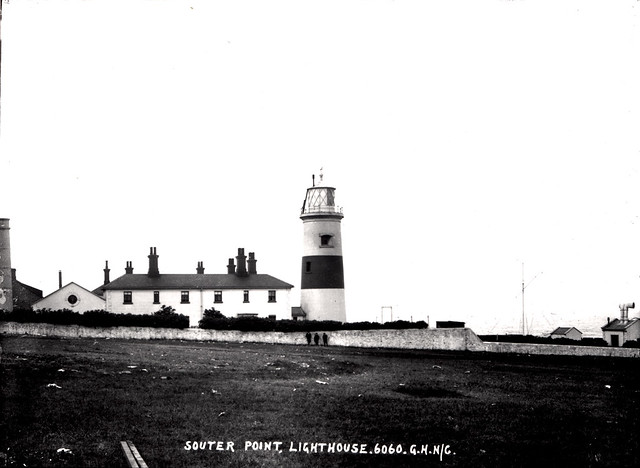
from Newcastle libraries (flickr)
029283:Whitburn shipping Souter Point Lighthouse C.1900
Pinned by Simon Cotterill
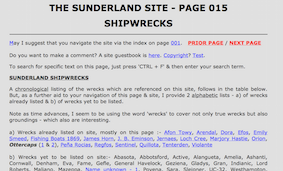
from http://www.searlecanada.org/s…
TENTERDEN Shipwreck
- The ship that crashed in 1866!
Added by
Lauren Wilson
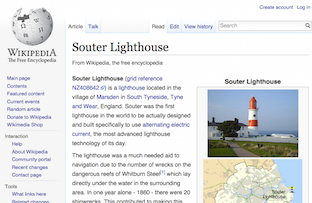
from http://en.wikipedia.org/wiki/…
The ghost of souter lighthouse
- The Ghost of Souter Lighthouse:
Almost 100 years have passed since Isabella Darling last wandered Souter Lighthouse; with her husband, Robert, she kept a vigil for a quarter of a …
Added by
Leo Allan

from http://en.wikipedia.org/wiki/…
Isabella Darling
- Isabella Darling once lived in Souter Lighthouse. She was the niece of Grace Darling. She was born on the 20th January, 1781, Belford, Northumberland. There have been reports of her …
Added by
Leo Allan

from http://en.wikipedia.org/wiki/…
Souter Lighthouse Facts
- Souter Lighthouse was built on the North east coast on Lizard Point in 1871 by James Douglass. Originally it was going to be built on Souter Point but Lizard Point's …
Added by
Max Mellor
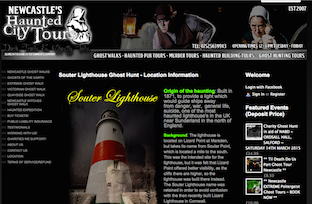
from http://www.aloneinthedarkente…
The Ghost at Souter Lighthouse
- In 1838, Grace Darling earned her reputation as the country's most celebrated maritime heroine when she rescued crew members of a sinking ship in treacherous conditions. More than 160 years …
Added by
Max Mellor

from http://www.nationaltrust.org.…
Souter Lighthouse history
-
Built in 1871 to ward ships from the dangerous rocks at Whitburn Steel, Souter was the first lighthouse in the world purpose built to use electricity.
Souter was a technological …
Added by
Leo Allan

from https://gshsorg-my.sharepoint…
Souter lighthouse links
- This is a few links to some information.
- Izzy and Ella
Added by
Isabelle Miller
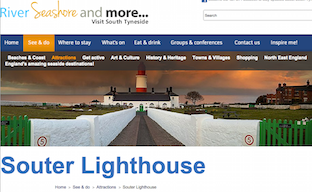
from http://www.visitsouthtyneside…
Visit Souter Lighthouse
- Souter Lighthouse, with its dramatic red and white hoops, is an iconic landmark on the North East coast.
You can experience what life was like for the Lighthouse Keeper, with …
Added by
Leo Allan
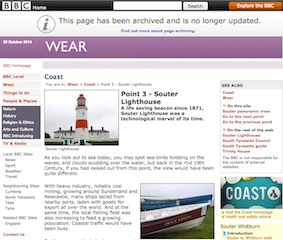
from http://www.bbc.co.uk/wear/con…
Marsden Village History
- As you look out to sea today, you may spot sea-birds bobbing on the waves, and clouds scudding over the water, but back in the mid 19th Century, if you …
Added by
Leo Allan
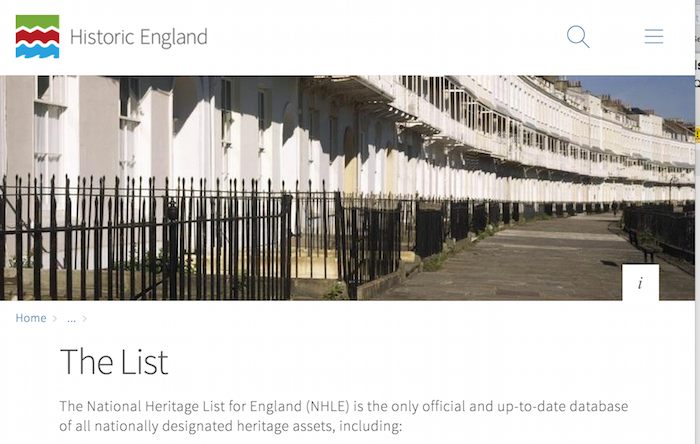
from https://historicengland.org.u…
Souter Point Lighthouse and attached buildings - List Entry
- "Lighthouse, engine house, boilerhouse, workshops and houses. 1871 by Sir James N Douglas for Trinity House, London. Rendered; Welsh slate roofs. 4 ranges of buildings around a courtyard with the …
Added by
Simon Cotterill
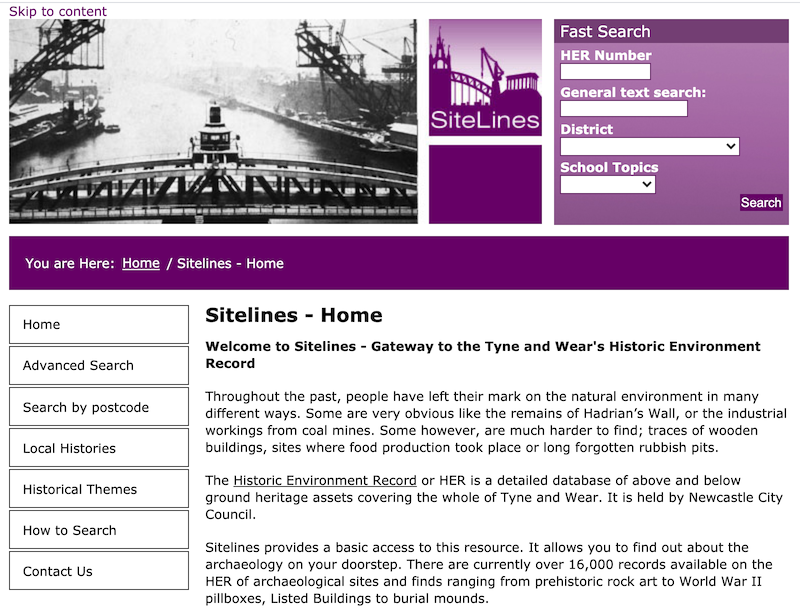
from http://twsitelines.info/SMR/2…
Tyne and Wear HER(2489): Marsden, Souter Point Lighthouse
- "When it opened in 1871 Souter was the most advanced lighthouse in the world. It is sited on Lizard Point but named after Souter Point about one mile south, to …
Added by
Peter Smith


from http://www.nationaltrust.org.…
Souter Lighthouse and The Leas
- Visitor information, activities, photos and summary of the history of Souter Lighthouse.
Added by
Simon Cotterill

from Newcastle libraries (flickr)
029283:Whitburn shipping Souter Point Lighthouse C.1900
Pinned by Simon Cotterill

from http://www.searlecanada.org/s…
TENTERDEN Shipwreck
- The ship that crashed in 1866!
Added by
Lauren Wilson

from http://en.wikipedia.org/wiki/…
The ghost of souter lighthouse
- The Ghost of Souter Lighthouse:
Almost 100 years have passed since Isabella Darling last wandered Souter Lighthouse; with her husband, Robert, she kept a vigil for a quarter of a …
Added by
Leo Allan

from http://en.wikipedia.org/wiki/…
Isabella Darling
- Isabella Darling once lived in Souter Lighthouse. She was the niece of Grace Darling. She was born on the 20th January, 1781, Belford, Northumberland. There have been reports of her …
Added by
Leo Allan

from http://en.wikipedia.org/wiki/…
Souter Lighthouse Facts
- Souter Lighthouse was built on the North east coast on Lizard Point in 1871 by James Douglass. Originally it was going to be built on Souter Point but Lizard Point's …
Added by
Max Mellor

from http://www.aloneinthedarkente…
The Ghost at Souter Lighthouse
- In 1838, Grace Darling earned her reputation as the country's most celebrated maritime heroine when she rescued crew members of a sinking ship in treacherous conditions. More than 160 years …
Added by
Max Mellor

from http://www.nationaltrust.org.…
Souter Lighthouse history
-
Built in 1871 to ward ships from the dangerous rocks at Whitburn Steel, Souter was the first lighthouse in the world purpose built to use electricity.
Souter was a technological …
Added by
Leo Allan

from https://gshsorg-my.sharepoint…
Souter lighthouse links
- This is a few links to some information.
- Izzy and Ella
Added by
Isabelle Miller

from http://www.visitsouthtyneside…
Visit Souter Lighthouse
- Souter Lighthouse, with its dramatic red and white hoops, is an iconic landmark on the North East coast.
You can experience what life was like for the Lighthouse Keeper, with …
Added by
Leo Allan

from http://www.bbc.co.uk/wear/con…
Marsden Village History
- As you look out to sea today, you may spot sea-birds bobbing on the waves, and clouds scudding over the water, but back in the mid 19th Century, if you …
Added by
Leo Allan

from https://historicengland.org.u…
Souter Point Lighthouse and attached buildings - List Entry
- "Lighthouse, engine house, boilerhouse, workshops and houses. 1871 by Sir James N Douglas for Trinity House, London. Rendered; Welsh slate roofs. 4 ranges of buildings around a courtyard with the …
Added by
Simon Cotterill

from http://twsitelines.info/SMR/2…
Tyne and Wear HER(2489): Marsden, Souter Point Lighthouse
- "When it opened in 1871 Souter was the most advanced lighthouse in the world. It is sited on Lizard Point but named after Souter Point about one mile south, to …
Added by
Peter Smith
List grade: 2*
Tyne & Wear HER: 2489
Grid ref: NZ4080764169
Post code: SR6 7NH
Borough: Sunderland
